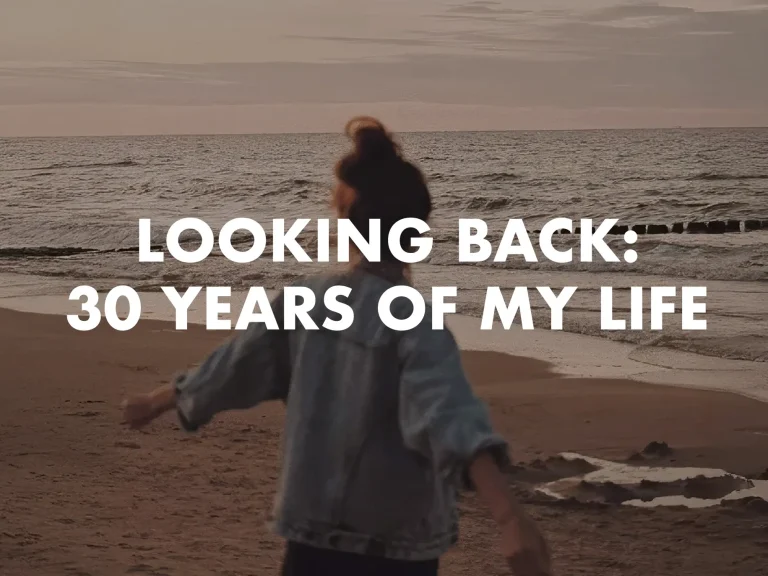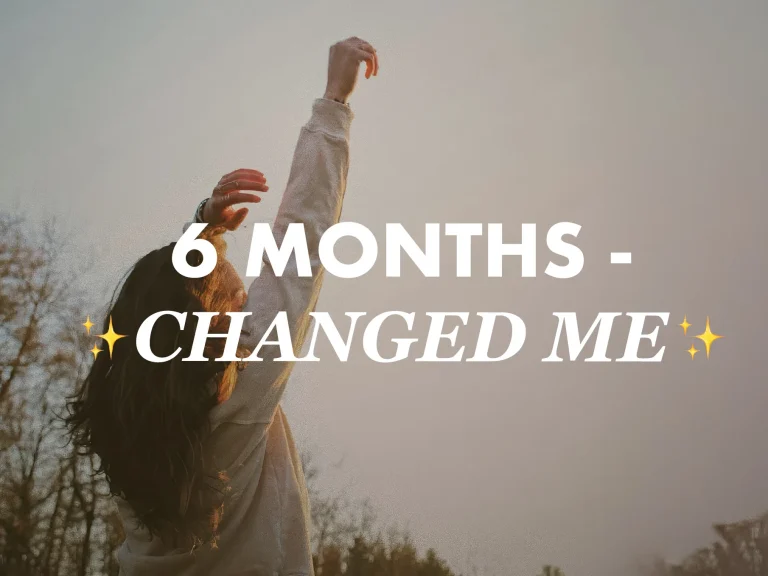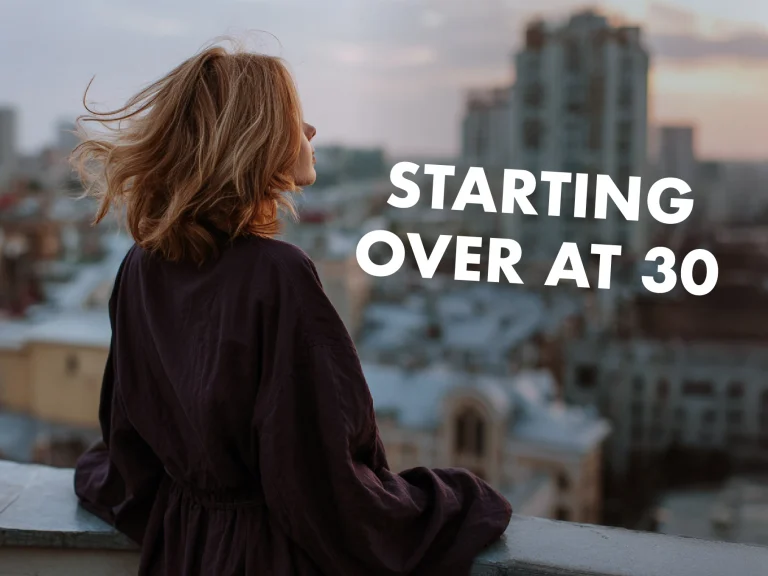THE ADVICE I NEEDED IN MY 20S — BUT NEVER GOT
If I could go back and sit across from my 20-year-old self in some little coffee shop, I wouldn’t give her a big motivational speech. I’d probably just tell her the things I wish someone had told me back then — the small, unglamorous truths that could’ve saved me years of confusion, comparison, and chasing the wrong things.
The funny thing about your twenties is that everyone makes it sound like “the best years of your life.” And in some ways, sure — there’s freedom, there’s discovery, there’s the thrill of doing things for the first time. But there’s also a lot of uncertainty, false starts, and moments where you wonder if you’re completely screwing it all up.
I had to learn most of this the hard way. Nobody sat me down to tell me what was normal, what was worth worrying about, or what could wait. And so I spent a lot of my twenties feeling like I was behind — when in reality, I was just living through the messy middle no one talks about.
Here’s what I wish I’d heard sooner.

1. You don’t need to have your life figured out by 25
I thought 25 was some magical age where I’d have my career, my home, and my sense of self neatly sorted. Instead, I was switching jobs, moving apartments, and questioning every decision I made.
What I didn’t realize was that most people are still figuring things out well into their thirties and beyond. That sense of “I should be further along” is a trap — and it’ll only steal the joy of where you are right now.
At 25, I panicked because I wasn’t in my “dream career” yet. Looking back, I can see that none of my friends were either — we were all still experimenting, learning, and quietly panicking together.
2. Not every friendship will last — and that’s okay
When you’re young, you think the people in your life will always be there. In school or college, friendships feel effortless because you see each other constantly. But in your twenties, life starts pulling everyone in different directions — new jobs, relationships, cities, and priorities.
I used to take it personally when a friendship faded. I’d wonder if I had done something wrong or if I should’ve tried harder. Over time, I realized that many friendships aren’t meant to last forever, and that’s not a failure — it’s just life. People grow at different speeds and in different directions.
Some friends will remain close through every stage, even if you go months without talking. Others will be there for a season and then drift away. Both kinds matter. The ones who stay become your anchors, and the ones who leave still shape who you are for the better.
If I could tell my younger self one thing here, it would be: stop clinging to relationships out of fear of losing them. Let the right ones stay because they want to, not because you’re holding on so tightly.
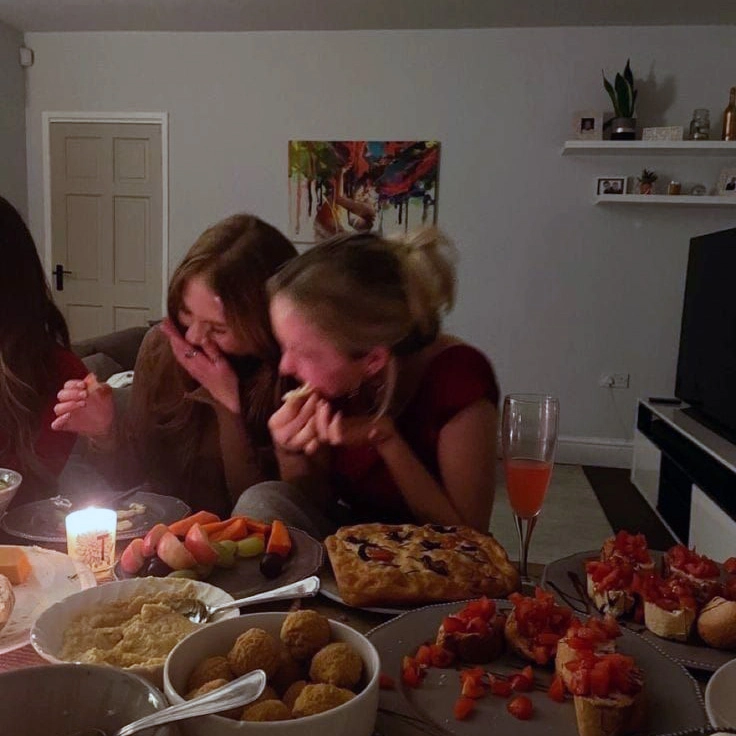
3. Taking care of yourself is not selfish
For most of my early twenties, I ran myself ragged trying to be everything to everyone — the friend who always said yes, the coworker who stayed late, the daughter who never missed a call, the person who could be counted on no matter what. It felt good to be “reliable.” It also left me exhausted.
I thought self-care was indulgent, something you “earned” after you’d taken care of everyone else. Now I understand it’s the opposite: taking care of yourself is what makes it possible to show up for others in a healthy way.
Self-care isn’t all spa days and scented candles (though those are nice). Sometimes it’s grocery shopping so you have healthy food at home, going for a walk even when you’re tired, getting eight hours of sleep instead of one more episode. Sometimes it’s cancelling plans because you know you need rest more than conversation.
I remember one winter when I agreed to every social plan because I didn’t want to disappoint anyone. By January, I was burned out, broke, and barely keeping up with my own life. That’s when I realized that taking care of myself sometimes meant disappointing other people — and that was okay.
4. Your career path doesn’t have to be a straight line
In my early twenties, I thought success meant climbing one clear ladder. What I’ve learned is that careers are more like messy scribbles — side steps, pauses, leaps you didn’t plan. The jobs I thought were detours actually taught me skills I use now every single day.
I once took a “temporary” job that had nothing to do with my degree. I figured it would be filler on my résumé until I found something “better.” That role ended up introducing me to people who shaped the next five years of my career, and it gave me experience I never could’ve predicted I’d need.
If I could give my younger self advice here, it would be: don’t dismiss opportunities just because they don’t match the plan in your head. Sometimes the detours are where you find the most meaningful work — or at least the connections that lead you there.

5. Learn to sit with uncertainty
Uncertainty used to feel unbearable to me. If I didn’t know what was next, I’d try to force a decision just to have some sense of control. Sometimes that meant rushing into jobs, relationships, or commitments that weren’t right for me — simply because “at least it was something.”
What I didn’t understand yet was that uncertainty is a constant in life. There will always be parts of your future you can’t see yet, no matter how much planning you do. And strangely, the most pivotal changes in my life have come from that in-between space — the waiting, the wondering, the moments when I had to trust without proof.
It’s not about loving uncertainty. I don’t think anyone does. It’s about not letting the discomfort push you into decisions that shrink your life. Now, when I don’t know what’s next, I try to hold still a little longer. I’ve learned that the right next step will usually reveal itself if I give it room to appear.
6. Stop comparing your timeline to everyone else’s
It’s so easy to look at someone else’s life and think you’re falling behind. But people hit milestones at completely different times — marriage, kids, careers, buying a home. There’s no universal schedule, even though social media will try to convince you there is.
If you’re doing the work of building a life that feels right for you, you’re not behind. You’re just on your own track.

7. It’s okay to change your mind
In my twenties, I treated changing my mind like it was failing. If I told people I wanted something — a certain career, a relationship, a lifestyle — I felt like I had to stick with it forever, even if it stopped feeling right.
But life isn’t a contract you sign at 21. You’re allowed to evolve. You’re allowed to realize that the version of you who wanted something at 23 didn’t have all the information you have now. Sometimes, the bravest thing you can do is admit, “This isn’t for me anymore,” and start fresh.
I’ve changed my mind about big things — my career direction, where I live, even what I thought I wanted in a partner. Each time, it was terrifying. Each time, it also made my life feel more like mine.
Changing your mind doesn’t erase the time you spent going after something. That time still taught you skills, resilience, and self-awareness. And sometimes, the only way to find what you do want is to first live through what you don’t.
8. Enjoy the freedom you have now
Your twenties don’t always feel free when you’re in them — rent, bills, job stress, and figuring yourself out can be exhausting. But looking back, I realize I had a kind of flexibility then that’s harder to replicate later in life.
I could move cities without worrying about uprooting a family. I could decide to spend a weekend on a last-minute road trip and not have to check anyone’s schedule but my own. I could try hobbies, courses, and jobs without the weight of long-term consequences.
The irony is, I spent so much of that time worrying about the future that I didn’t fully enjoy the freedom I had in the present. If I could do it again, I’d say yes to more random adventures. I’d spend more time outside. I’d let myself have more “pointless” fun — the kind that isn’t leading to a goal but just makes life richer.
That doesn’t mean being irresponsible. It just means recognizing that this chapter of life won’t last forever, and making sure you live it while you can.
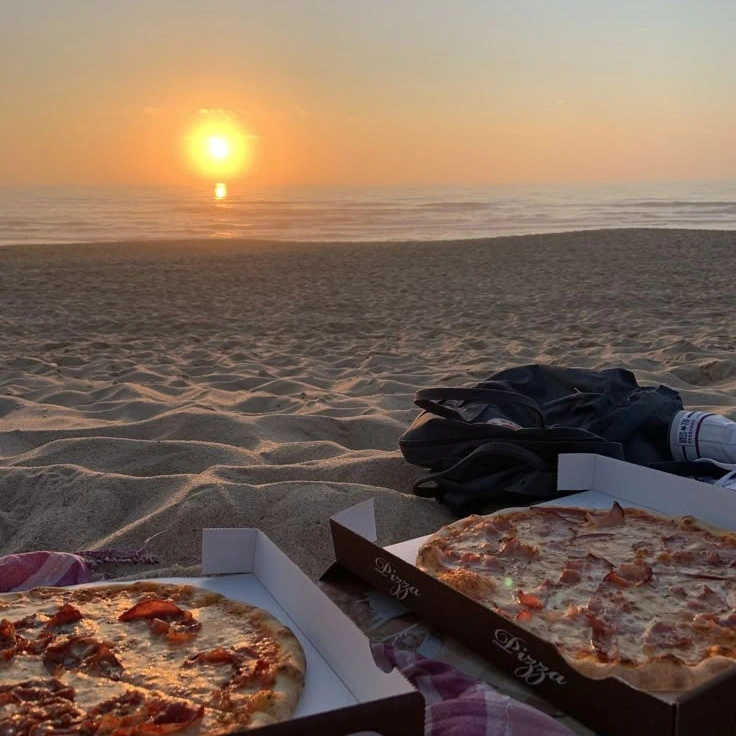
Looking back now
If I could tell my 20-year-old self just one thing, it would be this: you don’t have to rush. You’re not late. You’re not behind. The uncertainty you feel is normal — and you’ll find your footing, even if it takes longer than you thought.
Your twenties aren’t just a waiting room for “real life.” They are real life — messy, complicated, and full of moments that shape you in ways you won’t understand until later.
So if you’re in the middle of it now, I hope this is the advice you don’t have to learn the hard way.


